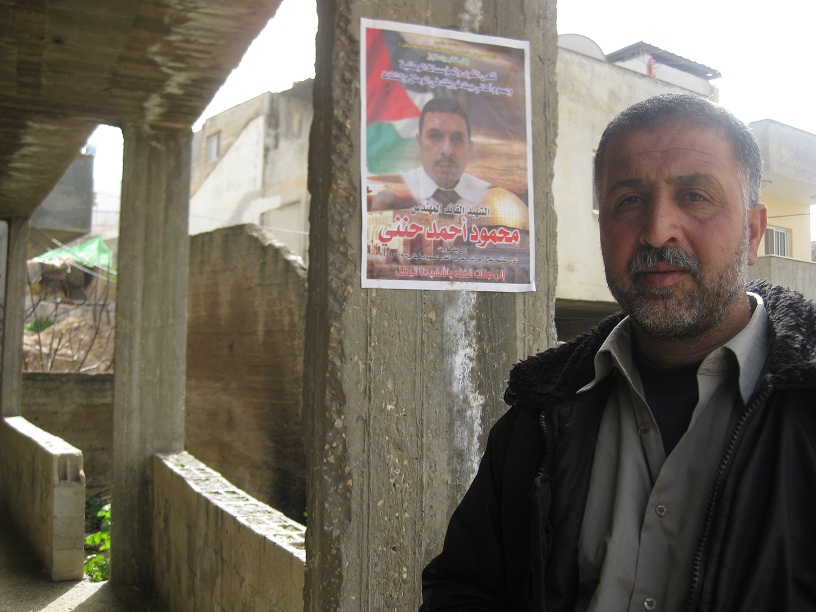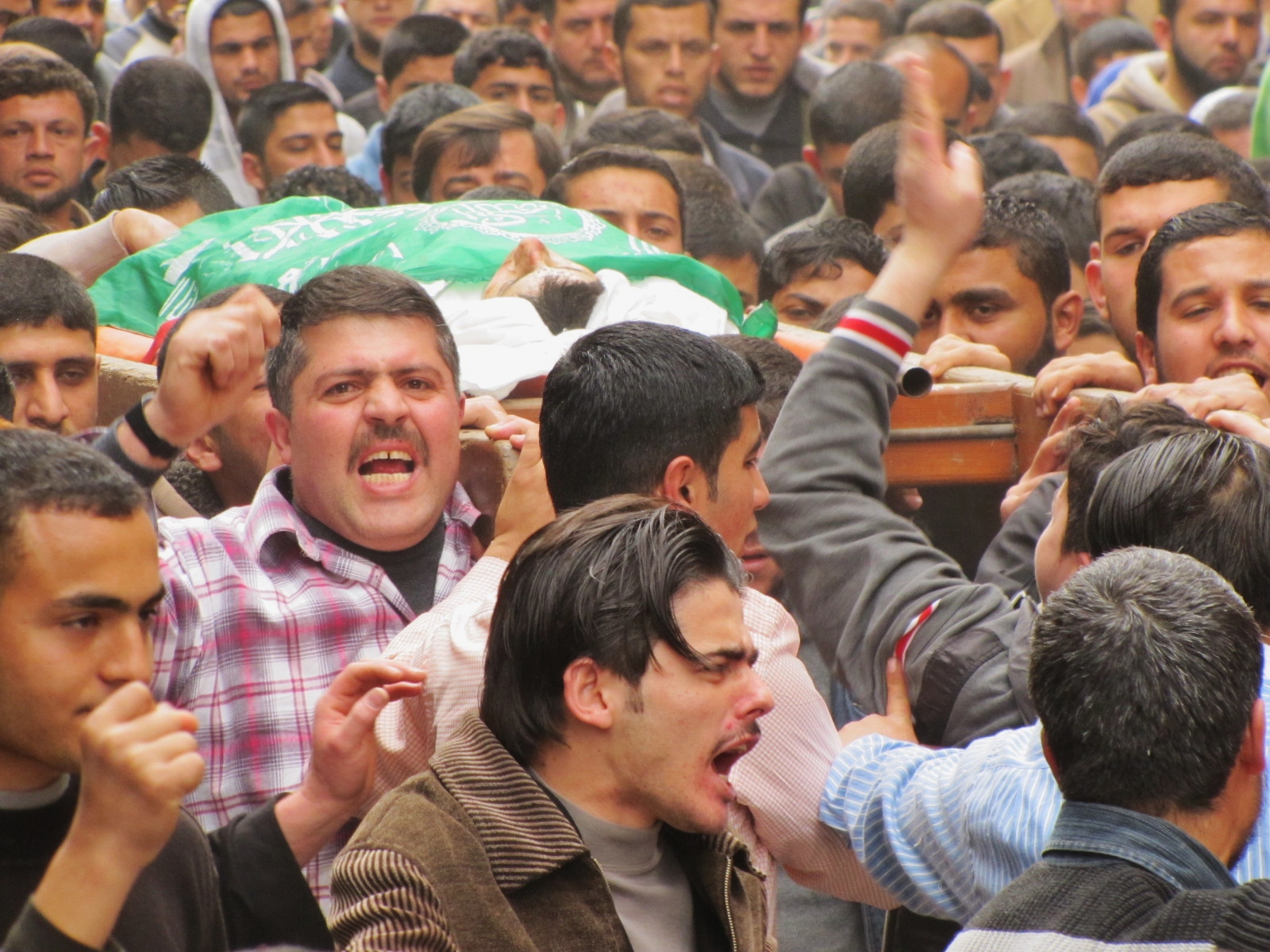Tag: Gaza
-
Beit Furik, Nablus: Family unable to attend funeral for son killed in recent Gaza air strikes
by Jonas Weber 13 March 2012 | International Solidarity Movement, West Bank “We called him Nassr, but I think his real name was Mahmoud,” says Ahmed while we were on the bus from the Beit Furik municipality building. Outside the bus window, the walls of the little town just outside of Nablus are plastered with…
-
Official Release: “The New Black” by The Mavrix
13 March 2012 | Palestine Solidarity Alliance and PACBI In a first ever musical collaboration between South Africa and Palestine, South African band, The Mavrix, and Palestinian Oud player, Mohammed Omar, have released a music video called “The New Black”. The song is taken from The Mavrix’ upcoming album,”Pura Vida”, due for release in June 2012.…
-
Burying Nayif Qarmout
13 March 2012 | Nathan Stuckey, International Solidarity Movement, Gaza Nayif Qarmout was killed by an Israeli missile today at 9:30 A.M. He was 14 years old. Five other teenagers with him were injured, Tamer Azzam, 16, Mu’ayyad al-Qanou’, 18, Hani al-Qanou’, 16, Salih Qarmout, 14; and Sa’eed al-Attar, 14. The boys were reportedly playing…


